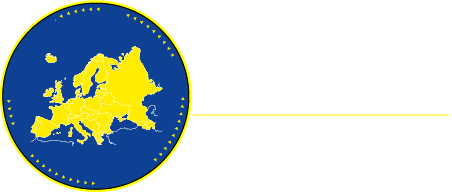

This course includes
- Introduction to Inclusion and Tolerance
- Understanding Diversity
- Inclusive Teaching Strategies
- Building an Inclusive School Culture
- Handling Challenges and Moving Forward
- Reflection, Evaluation, and Certification
Audience
- Teachers,
- Trainers,
- Educators,
- School administrators, etc.
This 5-day teacher training course aims to equip educators with the knowledge, skills, and strategies necessary to create inclusive and tolerant learning environments in schools. Participants will explore key concepts, historical perspectives, and legal frameworks related to inclusion.
Course Content
Daily Program
Locations & Dates
Pre-Register Form
Overview:
This 5-day teacher training course aims to equip educators with the knowledge, skills, and strategies necessary to create inclusive and tolerant learning environments in schools. Participants will explore key concepts, historical perspectives, and legal frameworks related to inclusion. The course will delve into understanding and appreciating diversity, providing practical tools for implementing inclusive teaching strategies, and fostering a culture of inclusivity within schools. Additionally, participants will learn to identify and address challenges, promoting conflict resolution and continuous improvement in their educational practices.
Learning Outcomes:
Upon completion of this teacher training course, participants will be able to:
Understand the importance of inclusion and tolerance: Articulate the significance of creating inclusive and tolerant learning environments and its positive impact on students’ academic and social development.
Recognize and appreciate diversity: Demonstrate an awareness of diverse backgrounds, perspectives, and needs among students, fostering a more inclusive classroom culture.
Apply inclusive teaching strategies: Implement Universal Design for Learning (UDL), differentiated instruction, and collaborative learning techniques to meet the diverse needs of students effectively.
Establish inclusive school policies: Develop and advocate for inclusive school policies that support diversity and create a positive and welcoming school culture.
Address challenges and conflicts: Identify and navigate challenges related to inclusion and tolerance, applying conflict resolution strategies to create a supportive learning environment.
Develop a personal action plan: Create an individualized plan for continuous improvement, incorporating inclusive practices into daily teaching routines.
Objectives:
Throughout the 5-day course, participants will:
Define key concepts: Clearly articulate definitions for inclusion, tolerance, diversity, and related terms.
Analyze historical and legal perspectives: Examine historical contexts and legal frameworks that shape the current landscape of inclusion in education.
Recognize and address biases: Identify and mitigate implicit biases and stereotypes that may impact teaching and learning.
Apply UDL and differentiated instruction: Implement Universal Design for Learning (UDL) principles and differentiate instruction based on diverse learner needs.
Collaborate for inclusivity: Work collaboratively with peers to develop and implement inclusive teaching strategies.
Create inclusive school policies: Develop policies that support diversity and inclusion within the school community.
Implement positive behavior and discipline: Apply positive behavior strategies and disciplinary approaches that promote inclusivity.
Navigate challenges: Identify and address challenges related to inclusion, using effective problem-solving strategies.
Promote conflict resolution: Apply conflict resolution techniques to address conflicts within an inclusive classroom.
Develop a personal action plan: Create an actionable plan for incorporating inclusive practices into their teaching, continually improving their approach to inclusion and tolerance.
Methodology:
The course program will utilize various teaching methods, including:
Lectures, discussions, and expert-led sessions.
Hands-on activities and interactive games.
Group work and collaborative lesson planning.
Outdoor learning experiences.
Reflection, peer feedback, and action planning.
Real-world examples.
Certification of completion at the end of the program.
Day 1: Introduction to Inclusion and Tolerance
Welcome and Icebreaker
Overview of the Importance of Inclusion and Tolerance in Schools
Definition and Key Concepts
Historical Context of Inclusion and Tolerance in Education
Legal and Policy Frameworks
Case Studies and Examples
Day 2: Understanding Diversity
Defining and Recognizing Diversity
Intersectionality in the Classroom
Implicit Bias and Stereotypes
Creating a Culturally Responsive Classroom
Strategies for Recognizing and Celebrating Diversity
Activities and Group Discussions
Day 3: Inclusive Teaching Strategies
Universal Design for Learning (UDL)
Differentiated Instruction
Collaborative Learning Strategies
Adapting Materials and Assessments for Diverse Learners
Technology for Inclusive Education
Guest Speaker: Inclusive Education Practitioner
Day 4: Building an Inclusive School Culture
Establishing Inclusive School Policies
Promoting Positive Behavior and Discipline
Fostering a Safe and Supportive Environment
Staff Collaboration for Inclusion
Parent and Community Involvement
Panel Discussion: Successful Inclusion Stories
Day 5: Handling Challenges and Moving Forward
Identifying and Addressing Challenges
Conflict Resolution in an Inclusive Classroom
Self-Reflection and Continuous Improvement
Action Planning: Implementing Inclusive Practices in Your Classroom
Resources and Support Networks
Closing Ceremony and Certificates

Lisbon – Portugal
Location:
Lisbon – Portugal
Dates:
09-13 December 2024

Izmir, TURKEY
Location:
Izmir, TURKEY
Dates:
14-18 April 2025

Bucharest, Romania
Location:
Bucharest, Romania
Dates:
12-16 May 2025
